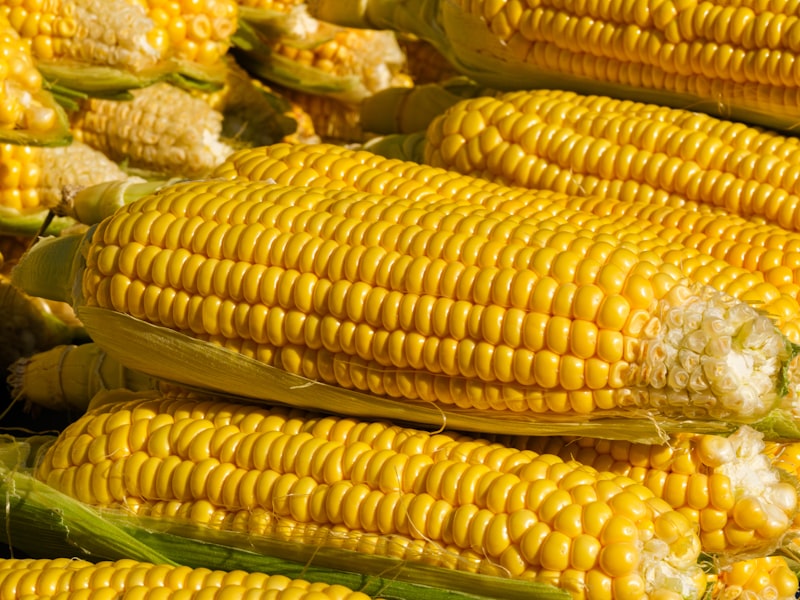Firstly, let’s explore the health advantages. Vegetarian and vegan diets are rich in fiber, vitamins, and antioxidants while being low in saturated fats and cholesterol. This combination can help reduce the risk of heart disease, lower blood pressure, and improve overall cardiovascular health. Studies also suggest that plant-based diets may lower the incidence of certain cancers and contribute to better weight management.
Beyond personal health, embracing vegetarianism or veganism supports environmental sustainability. Animal agriculture is a significant contributor to greenhouse gas emissions, deforestation, and water pollution. By reducing or eliminating animal products from your diet, you can significantly decrease your carbon footprint and help conserve vital resources like water and land.

Moreover, these diets promote animal welfare by reducing the demand for factory-farmed meat and dairy products. Choosing plant-based alternatives encourages a more compassionate approach to food consumption, aligning with ethical principles of kindness towards animals.
Embracing vegetarianism or veganism isn’t just about what you eat; it’s a lifestyle that encourages mindfulness and conscientiousness about food choices. It challenges you to explore new ingredients, experiment with flavors, and discover innovative cooking methods. From hearty vegetable stews to decadent dairy-free desserts, the culinary possibilities are endless.
In essence, whether motivated by health, environmental concerns, or ethical considerations, adopting a vegetarian or vegan diet can lead to a healthier, more sustainable, and compassionate lifestyle. By making this choice, you join a growing movement towards a better future for both yourself and the planet.
Unlocking Health: The Surprising Benefits of a Vegan Diet
Have you ever wondered how a simple change in diet could unlock a world of health benefits? Enter the vegan diet – a plant-based lifestyle that’s gaining popularity for more than just ethical reasons. Let’s dive into the surprising ways a vegan diet can transform your health.
Firstly, picture your body as a finely tuned machine. Like any machine, it needs the right fuel to function optimally. A vegan diet provides just that – a rich array of fruits, vegetables, nuts, seeds, and whole grains packed with essential vitamins, minerals, and antioxidants. These nutrients act as the building blocks for a robust immune system, healthier skin, and improved digestion.
But it doesn’t stop there. By eliminating animal products, you’re also cutting out excess saturated fats and cholesterol that can clog arteries and lead to heart disease. Studies consistently show that vegans tend to have lower cholesterol levels, reducing their risk of cardiovascular issues significantly. It’s like giving your heart a daily dose of TLC.
Moreover, let’s talk about weight management. Plant-based diets are often lower in calories compared to their meat-centric counterparts. This can naturally lead to weight loss or easier weight maintenance without the need for strict calorie counting. Imagine shedding those extra pounds while enjoying delicious meals filled with colorful veggies and wholesome grains!
And what about the environment? Choosing a vegan diet isn’t just about personal health; it’s a statement for the planet. Animal agriculture is a leading cause of greenhouse gas emissions, deforestation, and water pollution. By opting for plants over animals, you’re reducing your carbon footprint and preserving natural resources for future generations.
Plant-Powered Living: How Vegetarian Diets Enhance Well-being
Embracing a vegetarian diet means incorporating more plant-based foods like fruits, vegetables, nuts, seeds, and legumes into your daily meals. These nutrient-dense foods are rich in vitamins, minerals, antioxidants, and fiber, essential for maintaining optimal health. By focusing on plants, you naturally reduce the intake of saturated fats and cholesterol, often found in animal products, which can contribute to heart disease and other health issues.
One of the remarkable benefits of vegetarianism is its potential to support weight management. Plant-based diets are typically lower in calories than diets rich in animal products, making it easier to maintain a healthy weight. The abundance of fiber in plant foods also aids digestion and promotes a feeling of fullness, reducing the tendency to overeat.
Moreover, research indicates that vegetarian diets may lower the risk of chronic diseases such as type 2 diabetes, hypertension, and certain cancers. The antioxidants and phytochemicals found in plant foods help to combat inflammation and oxidative stress, which are underlying factors in many chronic conditions.
Beyond physical health, vegetarianism can positively impact mental well-being. Eating nutrient-packed foods can boost mood and energy levels, providing a natural source of vitality without the highs and crashes associated with processed foods. Additionally, the environmental benefits of reducing meat consumption are profound, as plant-based diets generally have a lower carbon footprint, conserving resources and promoting sustainability.

Adopting a vegetarian diet isn’t just a dietary choice; it’s a lifestyle shift that can lead to profound improvements in both personal health and environmental impact. Whether you’re motivated by health concerns, ethical reasons, or environmental awareness, plant-powered living offers a pathway to a healthier, more vibrant life.
From Farm to Fork: Exploring the Environmental Benefits of Veganism
Imagine a world where every meal you consume contributes positively to the environment. That’s the essence of veganism. By eliminating animal products from your diet, you’re reducing the demand for intensive farming practices that are major contributors to environmental degradation. Animal agriculture is known to consume vast amounts of water, land, and feed, and it produces substantial greenhouse gas emissions. By opting for plant-based foods, vegans significantly lighten this environmental burden.
Water conservation is a critical environmental benefit of veganism. Did you know that it takes thousands of gallons of water to produce just one pound of beef? In contrast, plant-based foods generally require much less water to cultivate. By choosing a vegan diet, you’re conserving water resources and reducing your water footprint.
Land use is another area where veganism shines environmentally. Animal agriculture occupies extensive land for grazing and growing feed crops. This land use often leads to deforestation, habitat loss, and soil degradation. In contrast, plant-based agriculture can produce more food on less land, allowing for reforestation efforts and habitat restoration.
Greenhouse gas emissions are a pressing issue in the fight against climate change. Animal agriculture is a major emitter of greenhouse gases like methane and nitrous oxide, which have a far greater warming potential than carbon dioxide. By reducing or eliminating animal products from your diet, you’re directly cutting down on these potent emissions, helping to mitigate climate change.
The environmental benefits of veganism extend beyond just reducing greenhouse gases and conserving resources. They encompass broader ecological impacts, such as preserving biodiversity, reducing pollution from animal waste and agricultural chemicals, and promoting sustainable food systems that can support future generations.
Embracing veganism isn’t just a dietary choice; it’s a powerful way to contribute positively to our planet’s health. By choosing plant-based foods over animal products, you’re making a tangible difference in conserving water, preserving land, reducing greenhouse gases, and promoting a sustainable future for all living beings.
Beyond Meat: The Rise of Veganism and Its Impact on Global Health
In recent years, veganism has emerged as more than just a dietary choice; it’s become a global movement reshaping perspectives on health and sustainability. At the forefront of this shift is Beyond Meat, a pioneer in plant-based meat alternatives. Beyond Meat products, like their juicy burgers and savory sausages, mimic the taste and texture of traditional meat but are entirely made from plants. This innovation appeals not only to vegans and vegetarians but also to health-conscious consumers looking to reduce their meat intake for various reasons, including ethical concerns and environmental impact.
The rise of Beyond Meat and similar brands has sparked a broader conversation about the impact of dietary choices on global health. Plant-based diets are gaining recognition for their potential health benefits, such as lowering cholesterol levels and reducing the risk of heart disease and certain cancers. These diets are rich in fiber, vitamins, and antioxidants, which are essential for overall well-being. By promoting healthier eating habits, veganism supported by products like Beyond Meat is contributing to improved public health outcomes worldwide.
Moreover, the environmental implications of meat production are significant. Beyond Meat’s plant-based approach requires fewer natural resources and generates fewer greenhouse gas emissions compared to conventional meat production. This shift towards sustainability aligns with global efforts to combat climate change and preserve natural ecosystems for future generations.
As more people embrace plant-based diets, the market for vegan alternatives continues to expand, driving innovation and accessibility. Beyond Meat’s success underscores a growing demand for sustainable food options that promote both personal and planetary health. Whether you’re a committed vegan or simply curious about healthier food choices, the rise of Beyond Meat reflects a broader movement towards a more sustainable and compassionate future.
Meat-Free Marvels: Why Vegetarian Diets Are Gaining Popularity
One of the primary drivers behind this shift is health consciousness. Vegetarian diets, rich in fruits, vegetables, grains, and legumes, offer numerous health benefits. They are often lower in saturated fats and cholesterol, promoting heart health and reducing the risk of chronic diseases like diabetes and hypertension. By focusing on plant-based foods, individuals can maintain a balanced diet while ensuring adequate intake of essential nutrients such as vitamins, minerals, and fiber.
Environmental sustainability is another compelling reason for the rising popularity of vegetarianism. Producing meat requires significant amounts of resources, including water, land, and energy. By choosing vegetarian options, individuals can reduce their carbon footprint and contribute to conserving natural resources. This aspect appeals to environmentally conscious consumers who are increasingly aware of the impact of their dietary choices on the planet.
Furthermore, ethical considerations play a crucial role in the decision to adopt a vegetarian lifestyle. Many people are concerned about animal welfare and choose to abstain from meat consumption to align with their values of compassion and respect for animals. The shift towards plant-based diets reflects a growing awareness of the ethical implications of food choices and a desire to promote humane treatment of animals.

The surge in popularity of vegetarian diets can be attributed to multiple factors: health benefits, environmental sustainability, and ethical considerations. As more individuals recognize the advantages of Meat-Free Marvels, the trend towards vegetarianism is likely to continue shaping dietary preferences and influencing food choices globally.
Nutrition Redefined: How Vegan Diets Can Boost Your Immune System
Ever wondered how your diet impacts not just your waistline, but your overall health? Vegan diets, known for their emphasis on plant-based foods and exclusion of animal products, have been making waves for more than just ethical reasons. One of the remarkable benefits gaining attention is their ability to enhance your immune system.

Switching to a vegan diet isn’t just about what you exclude; it’s about what you include: nutrient-dense fruits, vegetables, nuts, seeds, and legumes. These foods are packed with vitamins, minerals, and antioxidants, essential for supporting a robust immune response.
Imagine your body as a fortress, with its defenders ready to ward off invaders. The vitamins found abundantly in vegan diets, like vitamin C from citrus fruits and vitamin E from nuts and seeds, act as the first line of defense. They help strengthen your immune cells, making them more effective at fighting off infections and illnesses.
Furthermore, plant-based diets are rich in phytonutrients, natural compounds that give fruits and vegetables their vibrant colors. These phytonutrients have powerful antioxidant properties, helping to neutralize free radicals that can damage cells and weaken immune function.
Unlike traditional diets heavy in meat and dairy, vegan diets are lower in saturated fats and cholesterol. This can reduce inflammation in the body, allowing your immune system to function more efficiently without being weighed down by excess fats.
So, whether you’re already vegan or considering the switch, know that your dietary choice isn’t just about what’s on your plate—it’s about fortifying your body’s defenses and redefining nutrition in a way that supports optimal immune health.
Sustainable Living: The Environmental Advantages of Going Vegan
One of the most impactful benefits of veganism lies in its reduction of greenhouse gas emissions. Animal agriculture is a significant contributor to methane and nitrous oxide emissions, which are potent greenhouse gases. By opting for a plant-based diet, individuals can significantly lower their carbon footprint. It’s like taking multiple cars off the road and letting the atmosphere breathe easier.
Moreover, veganism helps conserve precious water resources. Livestock farming consumes vast amounts of water for animal drinking purposes and crop irrigation for feed. By cutting out animal products, we can drastically reduce the water intensity associated with food production. This water conservation is crucial in the face of growing global water scarcity issues.
Deforestation, particularly in regions like the Amazon rainforest, is another critical environmental issue exacerbated by animal agriculture. Large swaths of forests are cleared to create grazing pastures or to grow crops for animal feed. By choosing vegan alternatives, individuals can contribute to preserving these vital ecosystems and protecting biodiversity.

Additionally, vegan diets tend to be more resource-efficient. Producing plant-based foods generally requires fewer resources such as land and energy compared to raising livestock. This efficiency is essential as global population growth places increasing demands on our limited resources.
When considering the environmental impact of our food choices, it’s clear that veganism offers a compelling solution. By making small changes in our diets, we can collectively make a significant difference in mitigating climate change, conserving water, preserving forests, and promoting sustainable resource use. The power to create a positive environmental impact is literally on our plates.
Frequently Asked Questions
What are the health benefits of a vegetarian diet?
Discover the numerous health benefits of adopting a vegetarian diet, including improved heart health, weight management, and lower risk of chronic diseases like diabetes and certain cancers.
How do vegetarian and vegan diets impact overall well-being and longevity?
Explore how vegetarian and vegan diets affect overall well-being and longevity. Understand the potential benefits such as reduced risk of chronic diseases and improved longevity associated with plant-based eating habits.
How does a vegan diet contribute to environmental sustainability?
Learn how a vegan diet supports environmental sustainability by reducing greenhouse gas emissions, conserving water and land resources, and minimizing deforestation associated with animal agriculture.
Can a vegetarian or vegan diet provide enough protein?
A vegetarian or vegan diet can provide sufficient protein through plant-based sources such as beans, lentils, tofu, tempeh, nuts, seeds, and grains like quinoa. Including a variety of these foods ensures adequate protein intake to meet daily requirements.
What are the potential benefits for weight management on a plant-based diet?
Discover the potential benefits of weight management on a plant-based diet, including improved digestion, lower calorie intake, and higher nutrient density. Plant-based diets are rich in fiber and antioxidants, promoting satiety and supporting sustainable weight loss.


